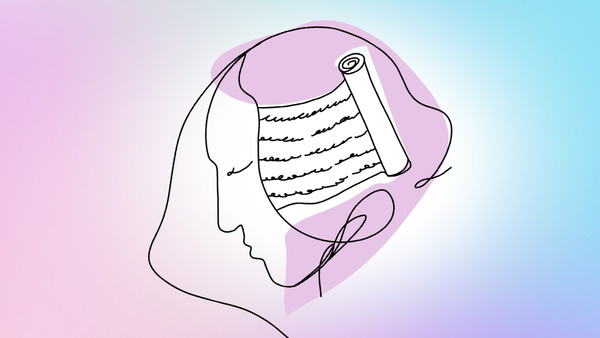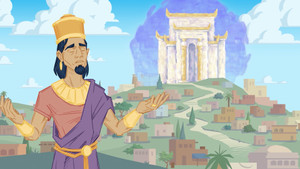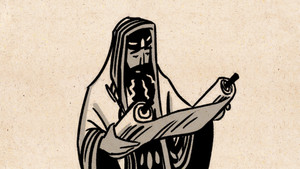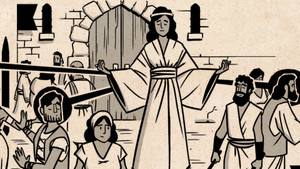

Psalm 1
Psalm 1 describes the path to a good life and the path to ruin. There are two ways of being human, and what we choose to meditate on makes all the difference.
Reflect
Psalm 1 begins by describing a person who is “blessed.” When we see the word “bless” in our Bibles, it could be translating one of two different Hebrew words, barukh (ברוך) or ashrey (אשרי). Which Hebrew word is used in Psalm 1, and what is the difference between the two? Why is it significant that the poet uses this word here?
Read Psalm 1:1 and notice the progression from from walking, to standing, to sitting. What are the destructive ways of being human associated with each word, and how would you describe those ways in your own words?
Read Psalm 1:2-3. We have seen what happens to people who ultimately sit or “plant” themselves on paths that lead to ruin. How do people plant themselves in ways that bring life instead?
Read Genesis 2. What garden of Eden language do you notice in Psalm 1? How is the “blessed” human in Psalm 1 similar to God’s ideal for humanity presented in Genesis 2?
When humans meditate on and live by God’s instruction, they begin to taste abundant life for themselves and others, which is called “success” or “prospering.” In other words, God’s wisdom leads to the good life. How is this definition of “success” and “the good life” different from your culture’s definition of these things?
How does the psalmist contrast the path of the wicked with the path of the one who meditates? Look for repeated or similar words and phrases. What do you notice? What is the decision human beings face that will determine which of the two paths they will follow?
Start Exploring
Downloads
More Videos Like This

The Book of Psalms

